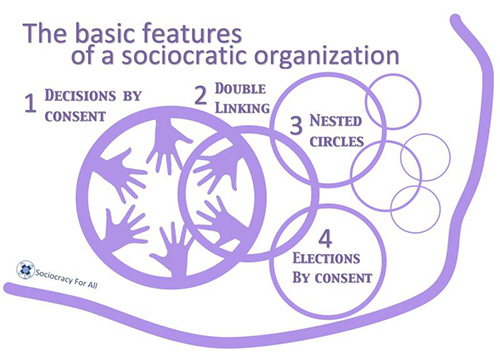About GovInn
Who we are
The Centre for the Study of Governance Innovation (GovInn) is the first research institution in Africa dedicated entirely to governance innovation. GovInn is an ‘innovation laboratory’ capable of generating new thinking about governance and development. It focuses on cutting-edge research, attracting innovators from all over the world. In short, GovInn is an intellectual ‘inn’ for innovation in the 21st century.
At GovInn, we focus on:
-
NEW ECONOMIC GOVERNANCE:
Alternative development approaches and new metrics of economic performance and well-being. -
GOVERNANCE OF THE COMMONS:
land, food, water, energy, agriculture and natural resources. -
TRANSBOUNDARY GOVERNANCE:
regional integration, civil society, migration and human development. -
SECURITY GOVERNANCE:
livelihoods, people’s centered development and creative conflict transformation.
What is governance innovation?
The term ‘governance’ indicates the complexity of decision-making processes in contemporary political and economic affairs. As opposed to the more traditional ‘government’, the idea of governance presupposes a fragmentation and diffusion of authority. Due to economic, social and cultural dynamics, no government nowadays can simply govern ‘alone’. It is bound to share ‘bits and pieces’ of authority with other entities, from non-governmental organizations to regional institutions and private corporations. Governance may take the form of a multi-level architecture of decision-making, which develops ‘vertically’ (as is the case, for instance, with supranational institutions and subnational local authorities) and/or a horizontal structure of diffused networks of governance systems (as is the case with the overlapping roles of the public, private and the third sectors).

As pointed out by Manuel Castell, governance is a result of a ‘networked society’ in which public and private authority is increasingly intertwined.
 University of pretoria, Political Sciences Building
University of pretoria, Political Sciences Building
As governance remains a contested concept, with different actors exerting different types and levels of influence, the concept of governance innovation indicates new ideas, experiments and practices that can help achieve better coordination and more commonly shared results in how we manage our societies.
“Governance innovation indicates the continuous search for new paradigms to resolve social conflicts and strengthen cooperation across different sectors and among people. In a word, to achieve better policy decisions in an era characterized by complexity and a holistic understanding of well-being”
In this regard, some of the most promising innovations in contemporary governance have to do with how we redesign our economic model and how we find better ways to share limited resources. In some areas, regional cooperation and integration have become crucial ways of responding to most challenges in the 21st century, which by nature transcend national borders. As the ultimate goal of government is to achieve development, then it becomes paramount to define what development is in today’s world.
To what extent does this influence our understanding of who we are as human beings in relation to ecosystems?
How should this change how public and private actors pursue their key goals, starting with our own security and that of our planet?
INTERESTED IN JOINING GOVINN?
That’s great news! We invite you to read this document and then send a paragraph about yourself, how you think you might benefit from being part of GovInn, and what you think you’ll bring to GovInn to info@governanceinnovation.org. The GovInn team will then give your application careful consideration and let you know the way forward.

The Centre for the Study of Governance Innovation (GovInn)
The Centre for the Study of Governance Innovation (GovInn) is an inter-Faculty, inter-University research centre founded at the University of Pretoria in 2012. GovInn is the first research institution in Africa dedicated, to inter-, multi- and trans-disciplinary research in innovative governance. Its current research focus is on ‘emancipatory governance’. GovInn’s seventeen research staff work across the Humanities, Social Sciences, and Natural and Agricultural Sciences to respond to today’s wicked problems that cut across both disciplinary boundaries and the science-policy-practice interface. Researchers at GovInn work with members of local communities, the general public and policymakers to respond to governance challenges locally, continentally and globally. The researchers address governance in critical areas such as land, water, mining, migration, cross-border trade, rural and regional development, food security, justice and conflict resolution, with a constant vision of the future of governance and governance of the future. An important dimension of GovInn’s research strategy is the inclusion of postgraduate students in its research projects as a means of mentoring and guiding them into meaningful, impactful research oriented careers. GovInn undertakes research that influences and shapes policy and governance. To this end, it investigates the intersection of local, national and international governance systems, initiates knowledge brokerage platforms and advises policymakers. GovInners sit on advisory boards with key stakeholders (international and regional organisations, government departments, embassies, think tanks, civil society organisations).

Vision And Mission
The vision of the Centre is that of a world class, multi- and transdisciplinary, collaborative, academic institution, focusing on governance innovation in Africa and globally. For the next three years this vision is specifically applied to ‘emancipatory governance’ as a means of exploring ‘innovative’ governance. The mission of GovInn is i) to foster awareness and understanding of governance innovation, and ii) to contribute to such innovation through its national and international engagements. The mission of GovInn is achieved at the theoretical and practical level, through research and expertise, capacity building and training, community engagement and the dissemination of information. GovInners see governance innovation as a “wicked problem”. Its “wickedness” stems from the architecture of governance, which crosses horizontal, vertical and transversal, individual and collective decision-making structures in nested ways. GovInn’s purposes in addressing governance from an innovative perspective is, therefore, to provide new insights by mobilizing theoretical and conceptual approaches as well as practical and concrete actions. The concept of ‘emancipatory governance’ and innovative approaches to make governance more emancipatory are at the core of all research at GovInn. Innovation not only includes novelty, but also “weak signals”, signs of emerging practices which contribute to making governance more emancipatory. Emancipation is about legitimizing the inclusion of a diversity of stakeholders as real contributors to decision making. Emancipation is also the action of becoming free from prejudice, dominance, and asymmetries in relationships of power. Further, emancipation implies the provision of skills and tools of empowerment to the actors involved in the processes of governance. Therefore, it differs significantly from conventional approaches to governance, as its focus is not only on the final state of a decision-making process, but also, and mainly, on principles and on how they translate into different states according to different conditions, evolving also over time. The “innovative” dimension is a dynamic one, making it possible for forms of governance to be continuously adapting, in more emancipatory ways, in which there is more opportunity for different voices to contribute to decision making. The fundamental questions the Centre addresses are: What innovative approaches are making governance more emancipatory? What is the impact of these approaches? How does emancipatory governance change the ways public goods are delivered within a society? Answering these questions simultaneously implies the assessment of existing governance practices and the way in which innovative approaches make governance more emancipatory. Though based in Africa, the activities of GovInn regarding governance innovation do not focus on African governance alone. However, GovInn prioritises Africa in its activities. Documenting African perspectives and practices on emancipatory governance is necessary if Africa is to innovate and find new ways towards economic and social progress and emancipation. As such, the continent could play a major role and lead the way for change for the rest of the world.

How We Organise Ourselves
Being constitutionally based in the Faculty of Humanities of the University of Pretoria, linked with the University’s Faculty of Natural and Agricultural Sciences, the Centre is a transdisciplinary research organisation that spans departments, faculties, centres and institutions through its existing partnerships. The Centre is managed by a Director and Executive Committee reporting to the Steering Committee but internally operates according to a flat, non-hierarchical, inclusive, participatory governance structure, which can be described as a ‘sociocracy’. The Executive Committee and all other contracted staff of the Centre share in decision-making responsibilities through consent. The main attribute of this system is a focus on deliverables and outputs rather than on the individuals themselves. A sociocracy is characterised by i) circles of engagements, with people grouped around common interests and common topical research problems, ii) double links across circles (people who connect the circles), and between the Centre and its partners in different areas, iii) decision by consent, and iv) election without candidates, based on co-optation and consent. This organization makes all GovInn members equal and have equal voices in decisions within the Centre and as regards external impacts on the Centre. A sociocratic organisation was opted for as it helps address several challenges that characterise a Centre like GovInn: complexity of tasks, heterogeneity of staff and member institutions, attitudes regarding how decision are made, and need to include individuality into collective action.

GovInn’s research is transdisciplinary in nature. This means that research at GovInn is i) actionable, ii) transcends disciplines, iii) develops a transgressive posture that looks at problems holistically, acknowledging uncertainty and complexity, iv) integrates a plurality of perspectives and types of knowledge including non-academic voices from outside the traditional boundaries of science. This emphasis on transdisciplinarity is also nurtured by the contribution disciplinary research can offer to address the overall research question on emancipatory governance, pushing disciplinary specialists’ boundaries.
Our Policy Briefs
Policy Brief 1
Recalibrating intercontinental relational entanglements: Frameworks for Africa’s trade and development relations with the European Union post-Brexit.
Policy Brief 3
Rethinking the migration question: Interests and priorities in the design of African Union-European Union migration policy frameworks.
Policy Brief 2
The African Continental Free Trade Area and the Africa-EU partnership: Priorities and support for the Pan-African vision of a single market.
Policy Brief 4
The Africa-EU Partnership and migration: A bottom-up approach as an alternative to
addressing irregular migration.








